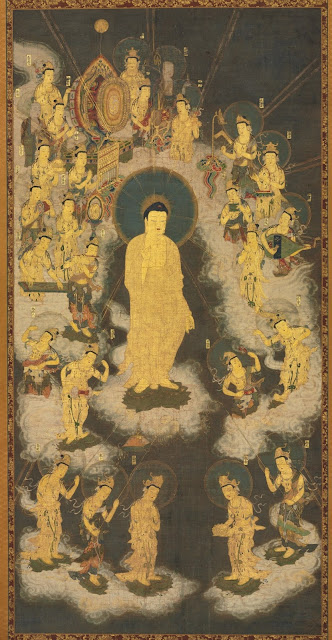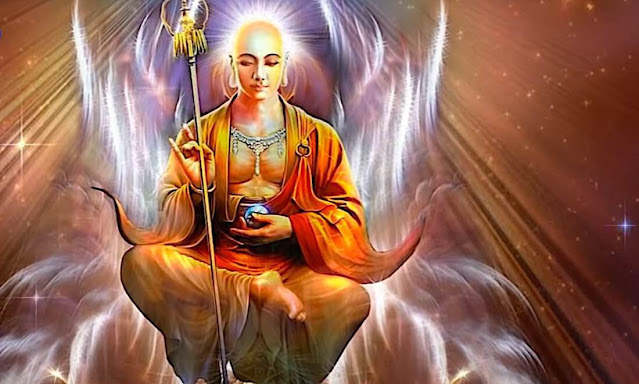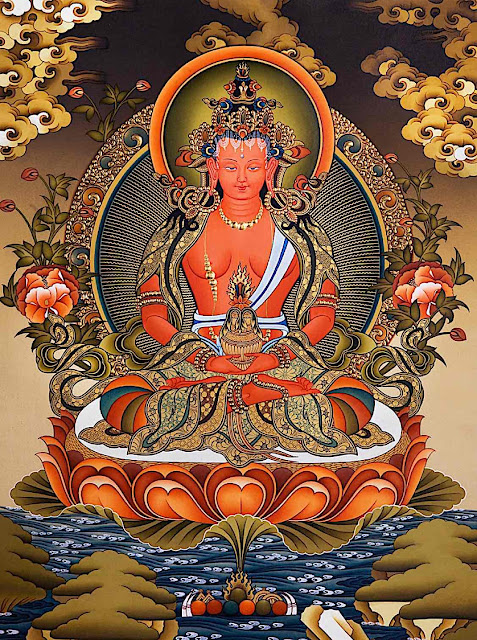The first books I read on Buddhism were helpful, but the first book I read while meditating and joining a sangha was the Dhammapada. It has an intensity that hits me today, and inspires me. I reread it all the time. Harder is to put the practices into place. Therefore the book has depth.
Another book that I greatly enjoy is The Life of the Buddha by Bhikkhu Ñāṇamoli Thera. It sketches the life of the Buddha through the Pali Canon sources. I never stop reading this book either. You can even follow it on instagram.
As my reading style has changed, I read for shorter periods, working to be mindful of the text for shorter periods of time, instead of gorging and ingesting as much as possible. I have as good as an overview as I'm going to get, so I don't have to rush any more. I've read quite a lot, but the literature is vast, sometimes compared to an ocean of Dharma. Choose your own style, closer readings, or fast and vast, or a mixture of both, as the situation calls for.
I also am not as superficially intoxicated by the teachings as I used to be. The Dharma isn't that exciting because it's hard to practice, and that's what it's all about. Being a good mindful kind person is more important than knowing the teachings. I'm not. sure if I'm going to be able to become a straight up Madhyamika person. I used to think I was interested in philosophy. What I have learned wasn't anything concrete, the content in the history of philosophy. I'm also interested in psychology, but that interest too has waned.
Another book I never stop reading is 100,000 Songs of Milarepa. I identify with overcoming past mistakes, and his crazy wisdom, but he was a dedicated practitioner, intense and articulate. He practiced in the mountains of Tibet, and the various forms of Tibetan Buddhism are quite attractive to me.
Rapacious China gobbled Tibet up in 1959, and there are people alive who still remember a free Tibet. I don't want to overly romanticize that Tibet, but I don't think the Chinese have improved it. Who knows, I've only been there in books. Going from a theocracy to a authoritarian communist form of government might be an evolution of sorts, but I don't think China practices communism the right way. Their squashing of dissent and the press is particularly repugnant to me. I think China should withdraw and let the Tibetans run their own country. What they are doing in Hong Kong now is terrible. I think Biden should boycott the Olympics, though it would devastate some athletes. The games are not meant to be political but it's impossible not to be.
Then I have my root guru Sangharakshita. His modern updating of Buddhism is unparalleled, and he was a victorian almost. His Survey of Buddhism came out in 1947! The year my mother was born. I would recommend The Essential Sangharakshita for beginners.
I did not know until I read Reddit, but some people think Sangharakshita's modernization of Buddhism isn't as great as I think it is. I'm not sure what to do with that. I have lost touch with the sangha, too, so there is a curious estrangement going on around that. But I will forever be grateful to the Triratna Sangha and hope to go on a retreat at Aryaloka soon.
When I think of the last great book I read, it was The Circle of the Way: A Concise History of Zen from the Buddha to the Modern World by Barbara O'Brien. I realized that there are some great classics in that tradition that I have not read yet. I was thinking this morning I should approach some of them.
The next person I think of is Ratnaguna. I really liked his book on the Pure Land sutras called Great Faith, Great Wisdom. You can listen to readings of the Pure Land sutras online. They are so beautiful.
Another of Ratnaguna books is On Reflection. Thinking about Buddhism is a practice. Who figured. Supposedly the monks would get together every full moon and discuss the Dharma, confess, chant, and generally hang out. The Sutra of Golden Light discusses confession. I love that idea. You can also reflect when you're alone. Since I'm listing Mahayana texts, The Vimalakirti Nirdesa is good too.
Sangharakshita read the Diamond Sutra when he was 16 and realized he was a Buddhist. This is also something I read. Indeed, I reread the Pali Canon too. Indeed you can read The Eternal Legacy or similar works that summarize the literature of Buddhism if you want something better than a blog post.
I like all the best selling authors. I'm not going to list them. Honestly, I read everything with a Dharma eye now. I try to study in depth and recently I read every book on the Brahma Viharas I could get my hands on. Boundless Heart (2017) by Christina Feldman was the best among those. Here is a quote from that book:
"The Buddha said it is not the right time to undertake samatha practice if you have a lot of things in the world demanding your attention. If you’re heavily in debt, or have family or relationship obligations that require attention, or if your body is ill and you are having to care for it. If there are multiple unresolved issues in your life that are going to be continually demanding your attention, then the conditions for samatha practice are not ripe. It is said that in order to begin the deep dimension of samatha practice, it is important that the mind must be fairly happy, it should be easy to collect itself, that it’s not kind of stirred with things that are causing a lot of anxiety or concern."
Also: "A world of distress is born of the ongoing argument we have with the unarguable."
David Loy's Nonduality was an important work. I like him in general.
I was on retreat once, and really loved the Therigatha. Now that is one straight up amazing book coming through the mist of time with women's voices. They were very inspiring.
There are a lot of great political books. There are a lot of political issues, and I think it's OK for a Buddhist to be "political". For instance the Dalit movement in India, rekindling Buddhism amongst the "untouchables" is quite amazing. The book on putting people of Japanese heritage inland in like concentration camps during WW2 has a great book about it, American Sutra.
I've enjoyed Stephen Batchelor's books. Living With The Devil is my favorite. Traditional Buddhist's don't like Buddhism Without Belief. Certain books were there for me at a certain time. Charlotte "Joko" Beck's books helped me to really commit to meditating. Lama Surya Das' book helped me just before I started, and I liked his book about the 7 paramitas. Jack Kornfield's books are still read by me. Ayya Khema is another female author. The Making of Buddhist Modernism by David L. McMahan points to a fascinating change in Buddhism as it encounters the western skeptical mind.
I have really enjoyed reading Ajahn Chan and listening to the biographies about Ajahn Mun Bhuridatta and Mae Chee Kaew by Bhikkhu Dick Silaratano.
There are other books. Zen Mind, Beginner Mind. The best writing of a year also are good collections. I'm going to be updating this post, so this isn't the final draft.































